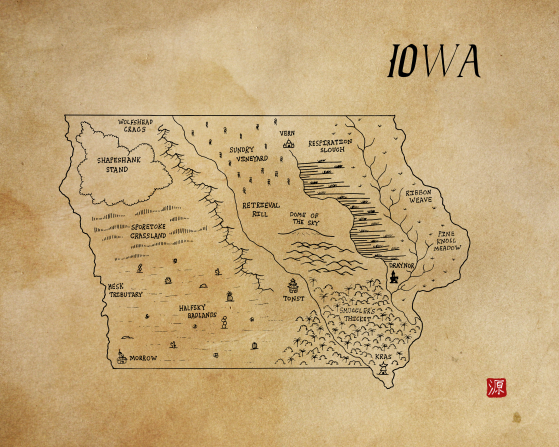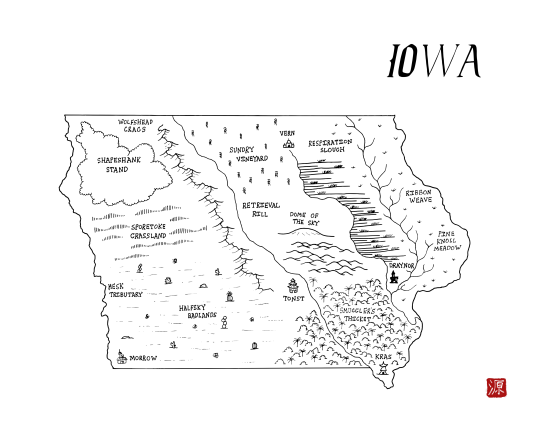Iowa
Native peoples arrived in Iowa more than 13,000 years ago, as hungers and gathers during the Pleistocene, colloquially known as the Ice Age. Gradually, they began to domesticate plants and settle in communities where they cultivated corn, wild rice, and gathered sugar from maple trees. Various tribes inhabited present day Iowa, most speaking a dialect of the Siouan language family. The name of the state is derived from the endonym (other tribes called them the Ioway) of the Bah-Koh-Je people. The Bah-Koh-Je were once part of the Winnebago Nation, which spanned the Great Lakes area and their name means “grey snow,” probably because their dwellings looked grey during the winter months due to soot from fires. Driven from their ancestral homes, today the Bah-Koh-Je are spread across two independent reservations in Kansas and Oklahoma.

